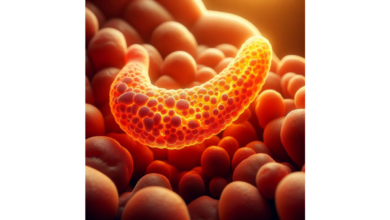Reasons Behind Bad Breath and Bad Taste in Your Mouth

Reasons Behind Bad Breath and Bad Taste in Your Mouth – If you’ve ever been startled by someone pulling back slightly after getting too close, or if you’ve felt the need to carry breath mints everywhere, you may already be aware of the discomfort that comes with bad breath. Understanding its causes is the first step towards tackling this common issue.
Poor Oral Hygiene
One of the primary culprits of bad breath is poor oral hygiene. When daily dental care is neglected, food particles linger in your mouth and contribute to unpleasant odors. Here’s what typically happens:
- Bacteria Build-Up: Your mouth is home to myriad bacteria. When you skip brushing or flossing, these bacteria thrive, producing sulfur compounds that emit foul smells.
- Plaque and Tartar Formation: Failure to remove plaque can lead to tartar formation, which not only causes bad breath but can also lead to gum disease, further exacerbating the problem.
- Dry Mouth (Xerostomia): Saliva is essential for washing away food particles and bacteria. Without adequate oral hygiene, you might develop dry mouth, creating an environment where odors can fester.
Thinking back, I remember a time in high school when I had a busy schedule, and my oral hygiene routine fell by the wayside. A teacher pulled me aside one day and kindly suggested I keep mints in my bag. It was an eye-opener, and at that moment, I realized just how crucial regular brushing and flossing really is. To maintain good oral hygiene and curb bad breath, consider the following:
- Brush Twice Daily: Use fluoride toothpaste for at least two minutes each time.
- Floss Daily: Don’t let food particles linger between your teeth.
- Clean Your Tongue: A tongue scraper can effectively remove bacteria build-up on the surface of your tongue.
- Stay Hydrated: Drinking plenty of water can help prevent dry mouth.
Dental Issues
Beyond daily routines, dental issues can significantly contribute to bad breath. These problems may range from minor to severe, but either way, they often require professional attention.
- Tooth Decay: Cavities harbor bacteria, which can produce unpleasant odors. If you’ve got a cavity, you might be confronting more than just a minor inconvenience.
- Gum Disease: Conditions such as gingivitis and periodontitis can lead to serious oral health problems. They are characterized by swollen, bleeding gums and persistent bad breath.
- Abscesses: These are localized infections that can develop at the root of a tooth or in the gums, often accompanied by bad breath.
I recall a friend’s experience with gum disease. They brushed their teeth religiously, but neglecting to floss made all the difference. A dental checkup revealed the underlying issue, and once treated, their breath improved noticeably. Signs You Might Have a Dental Issue:
- Persistent bad breath despite good oral hygiene
- Sensitive or bleeding gums
- Pain in or around a tooth
- Unusual or persistent bad taste in your mouth
If you’re experiencing any of these symptoms, a visit to your dentist could be beneficial. They can provide a comprehensive evaluation and recommend the necessary treatment. In summary, poor oral hygiene and dental issues can significantly impact your breath. By committing to daily dental care and staying attentive to any potential dental problems, you can effectively mitigate the risk of unpleasant odors. It’s important to remember that these efforts go beyond just maintaining a pleasant smell; they also contribute to your overall health and confidence. As you work towards better breath, don’t hesitate to seek professional help if something feels off. After all, as the saying goes, “A smile is the best accessory,” and you’ll want to ensure it’s paired with fresh breath. Moving forward, let’s explore other contributing factors that may affect not just your breath but also the taste in your mouth.
Factors Contributing to Bad Taste in Your Mouth
As we’ve explored the causes of bad breath, it’s essential to highlight that sometimes the problem isn’t just about how it smells but also about how your mouth tastes. A persistent bad taste can be equally uncomfortable and annoying, prompting many to seek out solutions. Among the various factors causing this unwelcome sensation, smoking and medications are significant contributors.
Smoking
Let’s face it: smoking isn’t just harmful to your lungs. It leaves an unmistakable mark on your oral health as well. The relationship between smoking and bad taste is both direct and indirect. Here’s how smoking can sour your mouth:
- Chemical Residue: Cigarettes contain a cocktail of chemicals that linger in your mouth, gums, and throat. These substances can leave a bitter, unpleasant aftertaste that’s hard to shake off.
- Impaired Taste Buds: Smokers often experience reduced sensitivity in their taste buds. This dulling effect can mean that certain flavors might taste off, leading to an overall bad taste in your mouth.
- Dry Mouth: Smoking inhibits saliva production. A dry mouth not only exacerbates bad breath but also contributes to that unpleasant taste since saliva plays a crucial role in neutralizing acids generated by bacteria.
I remember when my cousin decided to quit smoking. The process was tough, but what struck him most afterward was how vividly he could taste food again. It’s a testament to how smoking dulls the senses, and reclaiming that ability can lead to much more enjoyable meals, along with cleaner breath! Tips for Overcoming the Effects of Smoking:
- Gradually Reduce or Quit: If you’re a smoker, consider seeking support groups or professional help to quit.
- Stay Hydrated: Drinking plenty of water can help combat dry mouth; herbal teas can also be soothing.
- Use Mouthwash: A good antibacterial mouthwash can help neutralize the chemicals in your mouth and freshen your breath.
Medications
Another crucial factor that can contribute to a bad taste in your mouth is medications. Various prescriptions can leave you with an unpleasant aftertaste, and it happens more often than you might think. Here’s how medications can impact your oral experience:
- Side Effects: Many medications, including antibiotics and antihistamines, come with potential side effects such as dry mouth and altered taste perception, leaving a metallic or bitter taste.
- Gastrointestinal Issues: Some medications can upset your stomach or cause acid reflux, leading to an unpleasant taste as stomach acids creep back up the esophagus.
- Taste Alteration: Certain drugs interact directly with taste receptors on the tongue, leading to flavors that are less than pleasant.
I had a friend who was taking a specific antibiotic after surgery. While necessary for recovery, he often complained about the bad taste in his mouth, which would linger throughout the day. Yet, he learned that simply drinking more water and chewing sugar-free gum helped alleviate this effect significantly. Managing Bad Taste Due to Medications:
- Consult Your Doctor: If you notice a persistent bad taste while on medication, don’t hesitate to reach out to your healthcare provider. They may adjust your dosage or suggest alternatives that can minimize side effects.
- Good Oral Hygiene: Maintaining a robust oral hygiene routine can help mask unpleasant tastes. Brushing your tongue is particularly effective!
- Mouth Moisturizers: Over-the-counter saliva substitutes and oral moisturizers can help combat dry mouth, ultimately reducing any bad taste in the long run.
In wrapping up this section, it’s clear that factors like smoking and medications can contribute significantly to bad taste in your mouth. Tackling these issues isn’t merely about comfort; it can enhance your overall quality of life, making eating and drinking more enjoyable. The path to a fresh mouth and taste is achievable through understanding and addressing these factors. As we continue our exploration of oral health, next we’ll delve deeper into the connection between your diet and how it may affect your breath and overall mouth odor. Let’s keep moving toward a healthier you!
Connection Between Bad Breath and Diet
Continuing our exploration of oral health, it’s vital to recognize that what you eat plays a significant role in the freshness of your breath. Just as smoking and medications can impact your mouth’s taste and smell, certain foods can also leave lingering effects that lead to bad breath. In fact, your diet is one of the most controllable aspects that can dramatically improve—or worsen—your breath.
The Role of Food in Breath Odor
Our diet directly influences the composition of our saliva and the bacterial flora in our mouths. As you may have experienced, some foods can make your breath fresher, while others can contribute to unpleasant odors. Here is a closer look at how dietary choices affect your breath:
- Garlic and Onions: These flavor-packed alliums contain sulfur compounds that are absorbed into your bloodstream and can be exhaled through your lungs. Even after brushing, the odor can linger for hours.
- Sugary Foods: Accumulation of sugar in your mouth creates a feeding frenzy for bacteria, leading to acidosis and increasing the likelihood of bad breath.
- Dairy Products: Milk, cheese, and yogurt can also be culprits, particularly for those who have lactose intolerance. The sugars in dairy can promote bacterial growth.
- Heavy Proteins: Foods high in protein, such as meat, can produce ammonia when digested, which can result in foul-smelling breath, especially if you have underlying oral hygiene issues.
I can recall a lunch with a friend who ordered garlic bread. Sure enough, by late afternoon, he was apologizing left and right for his breath during our meeting. It’s a classic tale that emphasizes how some of our favorite foods can leave their mark!
Foods That Combat Bad Breath
While some foods contribute to bad breath, there are also plenty of options that can help freshen your mouth. Incorporating these into your diet can be a game changer:
- Fruits and Vegetables: Crunchy fruits and vegetables like apples, carrots, and celery help with saliva production and can naturally cleanse your mouth.
- Herbs: Fresh herbs like parsley, mint, and basil not only add flavor but have antibacterial properties that can help combat bad breath.
- Green Tea: Rich in polyphenols, green tea can reduce bacteria levels in the mouth, contributing to fresher breath.
- Nuts and Seeds: These can help stimulate saliva, which is a natural defense against bad breath.
For instance, a colleague of mine started snacking on raw veggies during the day instead of chips. She noticed that not only were her breath and mouth fresher, but she also felt more energetic without the crash from sugary snacks!
Hydration Matters
Don’t underestimate the power of hydration! Keeping your body hydrated supports saliva production and reduces the risk of dry mouth, which is a major contributor to bad breath.
- Drink Water: Aim for at least 8-10 glasses of water a day to flush out food particles and bacteria.
- Avoid Sugary Drinks: Beverages like soda and fruit juices can create a breeding ground for bacteria due to their high sugar content, leading to potential oral health issues and bad breath.
In my own experience, I’ve found that carrying a reusable water bottle is a game-changer. It reminds me to stay hydrated throughout the day and helps maintain my overall wellness.
Conclusion: Mindful Eating for Fresh Breath
In summary, your diet plays a pivotal role in the aroma of your breath. Being mindful of food choices and making small adjustments can lead to impressive improvements. By reducing the consumption of breath-busting foods and incorporating fresh, wholesome options, you can pave the way to a more delightful oral experience. As you adjust your diet, remember that consistency is key. Good breath isn’t just about avoiding certain foods; it’s about fostering a balanced approach to eating that promotes oral health. If you suddenly find yourself craving that garlic dish or sugary snack, just keep in mind the trade-offs that come with them. Next, let’s delve into the impact that various medical conditions can have on mouth odor and overall oral health. This exploration will help you understand how even underlying health issues can influence your breath and provide further insight into maintaining a fresher mouth.
Impact of Medical Conditions on Mouth Odor
Transitioning from the pivotal role that diet plays in maintaining fresh breath, it’s essential to acknowledge that sometimes, stubborn mouth odors can stem from medical conditions. If you’ve been brushing, flossing, and watching your dietary choices but are still fighting persistent bad breath, it might be time to look a little deeper. Several health issues can lead to changes in mouth odor, making this an important aspect of your overall oral health to consider.
Common Medical Conditions Linked to Bad Breath
A variety of medical conditions can contribute to noticeable mouth odor. Understanding these links is crucial for identifying potential underlying issues:
- Diabetes: Those with diabetes might experience a fruity or sweet smell on their breath due to high levels of ketones when their body starts breaking down fat instead of sugar for energy. This can be a sign of ketoacidosis, a serious condition that requires medical attention.
- Gastroesophageal Reflux Disease (GERD): GERD occurs when stomach acid flows back into the esophagus, which can not only cause heartburn but also lead to an unpleasant sour smell in the mouth.
- Chronic Sinusitis: This condition can cause post-nasal drip, which leads to throat irritation and a foul mouth odor due to the accumulation of mucus and bacteria.
- Kidney Disease: With kidney dysfunction, toxins build up in the body, often resulting in an ammonia-like or metallic odor in the breath.
- Liver Disease: Conditions such as liver failure can lead to a characteristic “fetor hepaticus,” which occurs when the body fails to process certain substances, creating a sweet or musty breath.
A friend of mine has type 1 diabetes and has frequently shared stories about how her breath can change when her blood sugar levels are off. This has emphasized for her the critical need to manage her condition effectively – not just for her health but also for her confidence in social situations.
Oral Health Issues and Systemic Conditions
In addition to specific diseases, various oral health issues tied to systemic conditions may also create bad breath:
- Periodontal Disease: Gum disease is notorious for causing bad breath. Bacteria proliferate in the pockets between your gums and teeth, producing sulfur compounds that lead to foul smells.
- Dry Mouth (Xerostomia): This can occur as a result of medications or systemic conditions such as Sjögren’s syndrome. Saliva helps cleanse the mouth, and a lack of it can lead to bitter or pungent odors.
- Mouth Infections: Fungal infections, such as oral thrush, can cause a yeast-like smell that can be quite uncomfortable and detrimental to oral health.
When my brother was diagnosed with gum disease, his dentist explained how the bacteria causing inflammation could lead to both bad breath and serious health risks. He was put on a strict oral hygiene regimen, which not only improved his breath but also his overall gum health.
Recognizing When to Seek Help
If you suspect that a medical condition may be contributing to changes in your breath, it’s essential to address the issue with a healthcare professional. Here are some signs indicating that it might be time to seek help:
- Persistent bad breath that doesn’t improve with oral hygiene
- Changes in the taste of your mouth
- Any noticeable changes in general health, such as fatigue or unusual digestive issues
- Symptoms related to specific conditions, like increased thirst or frequent urination in the case of diabetes
It’s always better to be proactive about your health. Investing in a doctor’s visit could provide clarity and lead to solutions that improve both your breath and your general well-being.
Conclusion: The Importance of Holistic Oral Health
In summary, while diet and daily hygiene play significant roles in managing mouth odor, underlying medical conditions can greatly influence your breath as well. Recognizing the link between your oral health and systemic conditions is crucial for maintaining overall wellness. Don’t let bad breath linger. If lifestyle changes aren’t making a difference, take it as a cue to explore further. Just remember, you’re not alone in this journey. Many people experience similar challenges, and reaching out for help is a sign of strength. In our next section, we will explore effective strategies to prevent bad breath and enhance your oral hygiene practices. With the right tools and knowledge, you can enjoy fresh breath and a healthy smile!
How to Prevent Bad Breath and Improve Oral Hygiene
Now that we’ve explored the factors that contribute to bad breath and the impact of various medical conditions, it’s time to shift our focus towards prevention. The good news? You have the power to take control! With some simple yet effective habits, you can maintain fresh breath and elevate your oral hygiene. As the saying goes, “An ounce of prevention is worth a pound of cure”—and this is undeniably true when it comes to your oral health.
Establish a Consistent Oral Hygiene Routine
The foundation of preventing bad breath lies in your daily oral hygiene routine. It’s essential to create habits that not only prevent odor but promote overall health.
- Brush Your Teeth Twice a Day: Ensure you’re brushing for at least two minutes each time, focusing on all surfaces of your teeth.
- Floss Daily: Flossing removes food particles and plaque buildup that brushing might miss.
- Use a Tongue Scraper: Your tongue can harbor bacteria, so consider including this handy tool in your routine. “Brushing the tongue is as crucial as brushing the teeth,” advises Dr. Sarah Lee, a local dentist.
I learned the importance of tongue cleaning after a friend shared her experience. Despite brushing diligently, she was still facing breath concerns. Once she started scraping her tongue, she noticed a huge improvement in her breath. It was a simple adjustment that made all the difference!
Stay Hydrated
Hydration plays a key role in maintaining oral health. Drinking adequate water helps to wash away food particles and bacteria that contribute to bad breath. Here’s why it matters:
- Promotes Saliva Production: Saliva is your mouth’s natural defense against odors. Staying hydrated ensures you have enough saliva to keep your mouth clean.
- Helps with Dry Mouth: If you’re prone to dry mouth, increase your fluid intake. Consider keeping a water bottle with you throughout the day as a reminder to keep gulping!
“When you’re well-hydrated, you’re not just serving your thirst; you’re also protecting your breath,” notes Dr. Emily Johnson, a dental hygienist.
Watch What You Eat
As we discussed earlier, what you eat plays a significant role in your breath. To maintain fresh breath, consider these dietary guidelines:
- Incorporate Fresh Fruits and Vegetables: Apples, carrots, and celery not only freshen your mouth but also encourage saliva production.
- Limit Sugary and Acidic Foods: These can encourage bad bacteria growth in your mouth.
- Chew Sugar-Free Gum: Gums sweetened with xylitol can help stimulate saliva flow and keep your mouth fresh between meals.
For example, my cousin recently switched from sugary snacks to fresh fruits. Not only did her breath improve, but she also felt healthier overall! It just goes to show how diet can influence not just breath but overall well-being.
Regular Dental Visits
Don’t underestimate the importance of regular check-ups with your dentist. These visits are essential for maintaining oral health and addressing potential issues before they escalate. Here’s how they help:
- Professional Cleanings: Dentists and hygienists can help remove plaque and tartar that builds up over time.
- Address Current Issues: If you have underlying dental health problems, like cavities or gum disease, your dentist can provide appropriate treatments to keep bad breath at bay.
- Personalized Advice: During your visit, don’t hesitate to ask your dentist for recommendations tailored to your specific needs, such as which mouthwash to use or how to improve your brushing technique.
“I always tell my patients that the best investment in health is a trip to the dentist,” shares Dr. Leah Chen, a family dentist.
Explore Breath Freshening Products
There’s a plethora of oral hygiene products designed to combat bad breath. Some options worth considering include:
- Mouthwashes: Choose an alcohol-free mouthwash that has antibacterial properties.
- Breath Freshening Sprays: Handy to keep in your bag, they can provide a quick boost when you need it.
- Toothpaste for Fresh Breath: Look for toothpaste that specifically states it fights bad breath.
Conclusion: Taking Charge of Your Oral Health
In conclusion, preventing bad breath and improving oral hygiene is a commitment you can make to yourself every single day. By establishing a comprehensive oral care routine, staying hydrated, watching your diet, maintaining regular dental visits, and using effective breath fresheners, you can effectively maintain a fresh mouth and a confident smile. Remember, your breath reflects your health, and with a few mindful practices, you can avoid common pitfalls and embrace a fresher future. Don’t forget: “Always put your best breath forward!” With these proactive steps, you’re well on your way to enjoying long-lasting freshness. As we wrap up this comprehensive journey into oral health, stay tuned for our next section, where we’ll tackle common myths about oral hygiene and unveil the truth behind maintaining a bright, confident smile!
You might also find this article helpful Weight Management: Tips for a Healthy Weight





